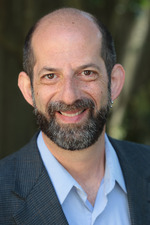Bodies of Knowledge – Bodies of Wisdom
 Tuesday, August 14, 2012 at 12:58AM
Tuesday, August 14, 2012 at 12:58AM
In a recent conversation with a Spiritual Counseling client, I made reference to the ancient and yet startling Jewish blessing for the internal functions of the body – all our internal plumbing – a blessing that traditionally is recited after going to the bathroom. The blessing begins with the words
Blessed are You, God, who created the human being in wisdom.
My client (this one happened to be literate in Hebrew) pointed out that the original text could legitimately be translated quite differently.
Blessed are You, God, who created the human being from wisdom.
I think what blew me away was the simplicity and the obvious rightness of his reading.
Not only can we perceive a wisdom in the structure of the body, but we can mine wisdom from the very tissues and fibers of it. The medium – the clay, if you will – from which we are sculpted is wisdom. We connect to that wisdom through what our bodies experience and feel. That experiential wisdom may be something we can translate into words, or it may remain inexpressible. Truth can get lost in translation. The sensation of a caress, a squeeze, an ache, or an orgasm can communicate a wisdom to our souls that no words can contain.
This reminded me of a healing session I experienced once with my friend and teacher Joe Weston. During a spiritual body work session shortly after my father died, Joe found places on my torso that were painful to the touch. I said, “Make the pain go away.” Joe replied, “You don't want the pain to go away, you want it to tell you what it knows.”
Bodies are made of wisdom. It's an obvious truth, yet it is a very Queer truth.
The acknowledgement of an authority competitive to the mind is Queer.
Recognizing the sensations and experience of the body as wisdom – that is so Queer!!!
To hold as a religious truth that the erotic body can teach the mind through its sensations is Queer.
The conforming* approach has been that the crude and ignorant body must only be lectured to and made wise by the mind. Queer God, Queer faith, Queer experience tell us different.
May we bless the Queer God who creates us from wisdom and in wisdom, and teaches us not to judge the ways in which we are wise.
* I have begun to adopt the term “conforming” in place of “straight” when describing the contrasting condition to Queer. From now on I will try to use “straight” only to mean opposite-gender attracted, which by no means precludes Queerness. In this context “conforming” means conforming to the illusion that only straightness is healthy or holy.
 Queer Spiritual Counseling
Queer Spiritual Counseling
In dem wogenden Schwall, In the billowing torrent, in dem tönenden Schall, in the resonating sound, in des Welt-Atems wehendem All in the wafting Universe of the World-Breath ertrinken, drown, versinken --- be engulfed --- unbewußt --- unconscious --- höchste Lust! supreme delight! Richard Wagner, Tristan und Isolde (trans. by Barbara Pothen)

